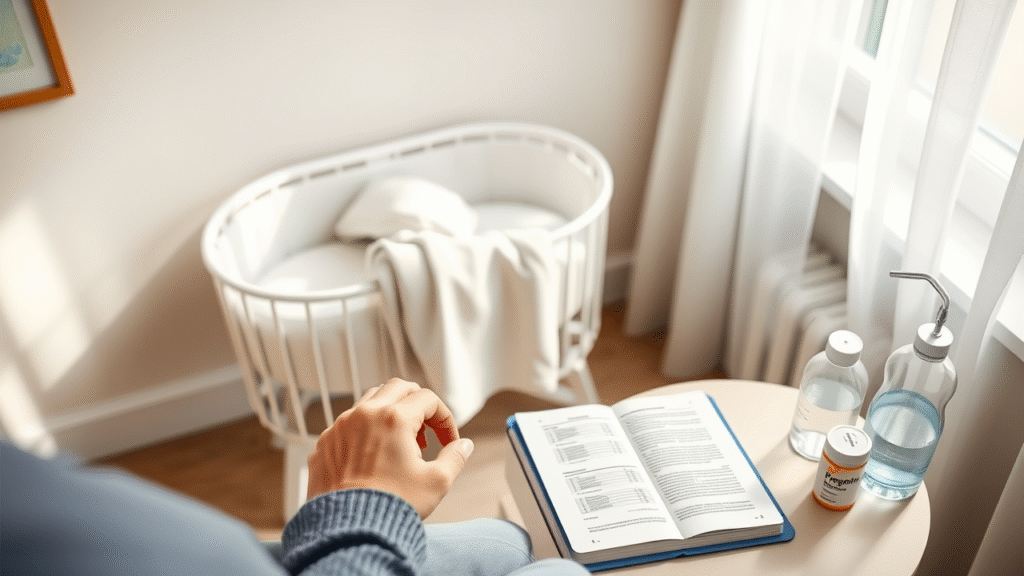Supporting a mother through pregnancy, labor, and the postpartum period is a profound journey that partners can deeply influence. From offering emotional comfort during pregnancy to practical assistance in labor and fostering recovery afterward, partners play many vital roles. This blog explores how open communication, promoting physical and mental health, recognizing postpartum challenges, and building strong bonds all contribute to a supportive environment. Each section highlights distinct ways partners can actively participate, making this shared experience smoother and more meaningful for both mother and family.
Understanding Emotional Support: The Crucial Role Partners Play During Pregnancy
Understanding emotional support during pregnancy highlights the vital role partners play in nurturing a mother’s mental and emotional well-being throughout this transformative journey. Pregnancy often brings fluctuating emotions, anxieties, and physical discomforts that require more than practical help—they demand empathy, patience, and consistent reassurance. By actively listening and validating feelings, partners can build trust and foster open communication, which is essential as outlined in the section on sharing feelings throughout pregnancy. This emotional connection also lays a strong foundation for navigating postpartum challenges together and recognizing mood disorders early with compassion. Moreover, emotional support intertwines with promoting physical health and creating a calm environment that reduces stress, ultimately enhancing both maternal comfort during labor and overall recovery after birth. When partners prioritize understanding and responding sensitively to these emotional needs, they not only ease immediate pressures but also strengthen their relationship through this profound life transition.
Practical Ways Partners Can Assist During Labor and Delivery to Ease Stress and Enhance Comfort

During labor and delivery, partners play a vital role in easing stress and enhancing comfort by offering hands-on support tailored to the mother’s needs. Practical actions like assisting with breathing techniques, providing gentle massage, or helping adjust positions can significantly reduce physical discomfort and promote relaxation. This active involvement not only calms nerves but also reinforces emotional support, echoing themes from the blog’s section on understanding emotional care during pregnancy. Being present and attentive allows partners to recognize subtle cues of distress or fatigue, linking closely to early detection strategies for postpartum challenges later on. By encouraging open communication throughout labor, partners help maintain trust and ensure that the mother feels heard and empowered during this intense experience. Such practical support creates a foundation for stronger bonds post-delivery while complementing efforts to foster wellness before birth and recovery afterward, making it an essential aspect of holistic partner involvement across the entire pregnancy journey.
Navigating Postpartum Challenges Together: How Partners Can Foster Recovery and Well-Being
Navigating postpartum challenges together is a vital aspect of supporting mothers as they transition into motherhood. Partners play an essential role in fostering recovery and well-being by staying attuned to both physical healing and emotional shifts after birth. This phase often involves recognizing signs of postpartum mood disorders, as discussed in the section on early detection and compassionate care, and offering steady encouragement without judgment. Beyond practical help with newborn care and household tasks, partners contribute significantly by maintaining open communication channels—building trust that allows mothers to share their feelings freely, as highlighted earlier in the blog. Creating a nurturing environment that reduces stress supports mental health during this delicate period, reinforcing wellness habits established before and during pregnancy. By embracing these responsibilities together, couples not only aid recovery but also deepen their connection, echoing the themes of bonding woven throughout the pregnancy journey. This collaborative approach ultimately strengthens resilience for both parents in the months following childbirth.
Encouraging Open Communication: Building Trust and Sharing Feelings Throughout the Pregnancy Journey

Encouraging open communication is fundamental to building trust and sharing feelings throughout the pregnancy journey. When partners create a safe space for honest dialogue, it deepens emotional support, complementing the crucial role they play during pregnancy as discussed earlier. This openness allows both to express hopes, fears, and needs, reducing stress and enhancing comfort during labor and delivery. It also lays the groundwork for navigating postpartum challenges together by fostering mutual understanding and patience in recovery. Clear communication helps partners promote physical health by aligning on wellness habits and managing mental health effectively within a supportive environment. Moreover, recognizing early signs of postpartum mood disorders becomes easier when partners are attuned to subtle emotional shifts through ongoing conversations. Ultimately, nurturing this connection strengthens their relationship bond across all stages of pregnancy, labor, and postpartum periods—highlighting how vital transparent communication is as a cornerstone of comprehensive partner support.
Supporting Physical Health: How Partners Can Promote Wellness and Healthy Habits Before, During, and After Pregnancy
Supporting physical health is a vital way partners can actively promote wellness and encourage healthy habits before, during, and after pregnancy. This commitment involves more than attending appointments; it means embracing lifestyle changes together—such as adopting nutritious diets, engaging in safe exercise, and ensuring adequate rest—to create a foundation for both mother and baby’s well-being. By prioritizing physical care, partners complement the emotional support detailed in sections like “Understanding Emotional Support” and reinforce the practical assistance highlighted during labor in “Practical Ways Partners Can Assist During Labor and Delivery.” Moreover, fostering healthy routines supports smoother recoveries discussed in “Navigating Postpartum Challenges Together,” while also easing stress levels tied to mental health concerns explored under “Creating a Supportive Environment.” Through this holistic approach that intertwines physical health with emotional resilience and open communication, couples build stronger bonds, echoing themes from “Building Lasting Bonds,” ultimately enhancing the entire pregnancy journey from conception through postpartum recovery.
Creating a Supportive Environment: How Partners Can Help Manage Stress and Promote Mental Health During Pregnancy and Beyond

Creating a supportive environment is essential for partners who want to help manage stress and promote mental health during pregnancy and beyond. This nurturing space acts as the foundation for emotional support, reinforcing the crucial role partners play throughout the journey, as explored in earlier sections. By fostering calmness and understanding at home, partners can ease anxieties that often arise during labor and delivery, complementing practical assistance with emotional reassurance. A supportive atmosphere also encourages open communication, allowing mothers to share feelings freely without judgment—a vital step toward building trust and addressing concerns early on. This environment aids recovery in the postpartum period by reducing isolation and empowering both parents to recognize mood changes together, aligning with strategies for responding to postpartum mood disorders. Ultimately, cultivating this safe space not only promotes mental well-being but also strengthens bonds between partners as they navigate the profound transitions of pregnancy, birth, and parenthood side by side.
Recognizing and Responding to Postpartum Mood Disorders: Partner Strategies for Early Detection and Compassionate Care
Recognizing and responding to postpartum mood disorders is a vital partner strategy that complements emotional support during pregnancy and practical assistance through labor. Partners who stay attuned to changes in mood, energy, and behavior can detect early signs of depression or anxiety, enabling compassionate intervention before challenges escalate. This awareness builds on the foundation of open communication established earlier in the journey, as discussed in encouraging honest sharing of feelings. By fostering a nonjudgmental environment where mothers feel safe expressing struggles, partners enhance both mental health and physical recovery efforts outlined in supporting physical health. Compassionate care after birth also strengthens the relationship bond during this transformative period, echoing themes from building lasting connections through shared experience. Ultimately, this proactive approach ensures that partners play an essential role not only in easing immediate stress but also in promoting long-term well-being throughout postpartum challenges and beyond.
Building Lasting Bonds: How Partners Can Strengthen Their Relationship Through the Pregnancy, Labor, and Postpartum Experience
Strengthening the bond between partners throughout pregnancy, labor, and postpartum deepens trust, empathy, and shared resilience. Embracing emotional openness, practical support, and attentive care lays a foundation for navigating challenges hand in hand. This journey transforms not only how partners relate to each other but also how they nurture their growing family together. As each phase unfolds, the commitment to understanding and kindness becomes a lasting gift. For those seeking gentle guidance along this path, MomDadDispatch.com stands as a quiet companion offering insight and compassion every step of the way.






